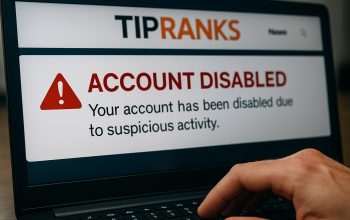- 23andMe has filed for Chapter 11 bankruptcy, raising concerns about the handling of genetic data from its 15 million customers.
- The House Committee on Energy and Commerce is questioning 23andMe’s data privacy practices and potential sale of sensitive genetic information.
- Concerns about genetic privacy are heightened by a judicial ruling permitting the sale of personal data in bankruptcy scenarios.
- A prior security breach and lack of HIPAA protections leave 23andMe’s data vulnerable.
- Former CEO Anne Wojcicki’s departure and the upcoming May 1 deadline add urgency to the situation.
- Consumers are encouraged to take control of their personal genetic data, with resources available for data deletion from 23andMe.
- The situation emphasizes the importance of stringent data privacy measures in preserving personal identity.
Descend into the twilight of 23andMe, once a luminous star in the biotechnology galaxy, now shrouded in uncertainty. Last month, this genetic data titan filed for Chapter 11 bankruptcy, sparking a blaze of questions that now dance through the corridors of power in Washington, D.C. The House Committee on Energy and Commerce, with Congressmen Brett Guthrie, Gus Bilirakis, and Gary Palmer leading the charge, demands answers about the fate of the sensitive information entrusted to the company by 15 million customers.
Imagine cavernous data vaults teeming with genetic sequences, each a personal tapestry of ancestry, health predictions, and unprecedented insight into the double helix. This treasure trove, however, presents a haunting dilemma as whispers of its sale echo through the committee’s halls, underscored by a stern reminder of the absence of a comprehensive federal data privacy and security law.
With the spotlight glaring harshly on 23andMe’s decision-making, the crux of congressional concern orbits around its privacy policy. In a stark revelation, the fine print admits the potential sale of personal data in the event of bankruptcy. This prospect turns more ominous following a judicial decree allowing such a transaction, casting shadows over the sanctity of genetic privacy.
Layered within these unfolding events is an old wound: a security breach that compromised customer trust, a saga unbeholden to HIPAA’s robust protections. 23andMe stands outside this regulatory umbrella, leaving its data more vulnerable than ever to prying eyes. In a recent pivot away from the company’s helm, former CEO Anne Wojcicki’s departure adds another twist to this turbulent narrative.
Now, faced with the looming May 1 deadline imposed by congressional leaders, the genomics powerhouse must unveil its strategy for vetting potential buyers and safeguarding the intimate secrets encoded in its genetic cache. The stakes are monumental, for they do not merely involve the survival of a company, but rather the integrity of personal identity.
As this drama unfolds, there exists an undeniable urgency for individuals to reclaim control — a digital exodus that Mashable suggests through a detailed guide on erasing your data from the embattled company. Pause and ponder what your DNA would say, should it find itself in the archive of another, potentially less scrupulous custodian.
Let this be a clarion call in this age of data vulnerability: understanding one’s genetic blueprint is inherently powerful, yet safeguarding such knowledge must remain paramount. The unfolding saga of 23andMe prompts a reflective question—how well do we guard the very essence of ourselves in a digital world that often knows not the value of discretion?
Uncharted Territory: The Future of Genetic Privacy Amidst 23andMe’s Uncertain Path
Introduction
In recent developments, 23andMe, once a frontrunner in the genetic testing industry, has filed for Chapter 11 bankruptcy, raising significant concerns about the management and security of sensitive genetic information. This move has not only caught the attention of customers and investors but has also propelled the House Committee on Energy and Commerce to scrutinize the company’s operations and intentions. As the situation unfolds, numerous pressing questions and potential ramifications come to light.
What Are the Immediate Concerns?
The central issue revolves around the handling and potential sale of genetic data belonging to approximately 15 million customers. This information, which offers insight into ancestry and health predictions, is particularly sensitive. Without a robust federal data privacy and security law, the prospects of data misuse loom large. Experts stress the necessity for stringent safeguards to ensure data is not exploited, especially in light of previous security breaches that tarnished customer trust.
The Impact of Bankruptcy on Genetic Data
A key point of contention is 23andMe’s policy that allows for the sale of personal data if the company declares bankruptcy. The situation is further complicated by a judicial decision permitting such transactions, underscoring the vulnerability of genetic privacy.
Former CEO Anne Wojcicki’s departure adds uncertainty to these already fraught proceedings. Her absence leaves the company in a pivotal phase where leadership decisions could shape the future of genetic data protection.
How-To: Protecting Your Genetic Information
If you are concerned about the safety of your genetic data with 23andMe, consider the following steps:
1. Request Data Deletion: Immediately contact 23andMe to request the deletion of your genetic data and personal information. This process may involve navigating the company’s privacy settings or contacting customer service directly.
2. Stay Informed: Follow updates from the House Committee on Energy and Commerce and other regulatory bodies examining the case to understand potential changes in data privacy law.
3. Explore Alternatives: Research other genetic testing companies that offer more stringent data protection policies.
Market Trends & Predictions
The genetic testing industry is poised at a crossroads. As privacy concerns grow, companies that prioritize data security and transparency will likely gain customer trust and substantial market share. Customers are increasingly seeking services that not only provide insightful genetic data but also assure robust protection against data breaches.
Reviews & Comparisons
When considering alternatives to 23andMe, examine companies such as AncestryDNA or MyHeritage, which offer comparable genetic testing services. Pay particular attention to their privacy policies, data security measures, and customer reviews to ensure that your information remains protected.
Actionable Recommendations
1. Prioritize Data Security: If you are using genetic testing services, ensure that your selected provider has clear privacy policies and data encryption measures.
2. Advocate for Legislation: Encourage lawmakers to establish comprehensive federal data privacy laws protecting genetic information.
3. Regularly Update Permissions: Periodically review and update your data sharing settings with any genetic testing company.
Conclusion
The ongoing saga of 23andMe underscores the critical importance of safeguarding genetic data. As individuals, it is imperative to remain vigilant, informed, and proactive about our digital footprints. By doing so, we not only protect our identities but also influence future practices and policies in the genetic testing landscape.
For more information on genetic testing and data security trends, visit 23andMe. Stay informed and empowered as we navigate the evolving terrain of genetic privacy.



